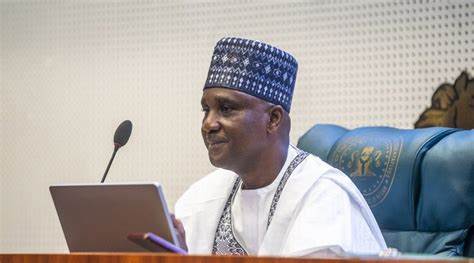The House of Representatives has recommended the establishment of a dedicated fund specifically for school safety to support the implementation of advanced security measures and training of security personnel and communities on strategies for protecting educational environments.
Speaker of the House, Hon. Abbas Tajudeen who disclosed this in his welcome address at the resumed plenary on Tuesday after the Easter and Eid-el-Fitr break, said the model can be piloted in a few schools, especially those that are most vulnerable to attacks.
Abbas said the House will work with the Senate to ensure speedy consideration and onward transmission of the bill to President Bola Tinubu for his assent to the legislation that enhances coordination between different security agencies.
He said when finalised, the law will establish a clear framework for intelligence sharing and response coordination which can significantly improve the country’s preventive capabilities.
According to the Speaker, the House in support of President Tinubu’s drive to establish a regional counter-terrorism centre for intelligence sharing, operational coordination, and capacity building throughout Africa.
Abbas also said recommendations from the recent National Dialogue on State Policing have been forwarded to the Committee on Constitutional Alteration for further legislative action while a steering Committee for the Legislative Security Summit scheduled to hold in the third quarter of the year has been constituted with members drawn from all the security-based committees of the House.
He also said the House has recommended the establishment of a joint task force dedicated to addressing illegal mining and mineral theft to coordinate between various government agencies such as the mining police to ensure a unified and robust response to these crimes.
“The theft of minerals undermines our economy, reducing the funds available for public services, infrastructure, and welfare programmes that could uplift millions of our citizens out of poverty. Furthermore, these illegal activities damage the environment and threaten livelihoods.
“In line with our agenda to boost government income and diversify the economy, the House will tighten regulations around mining operations, increase penalties for violations, and improve surveillance and enforcement mechanisms.
“Our intervention in this sector will necessarily involve closer collaboration with the Executive. As such, we recommend the establishment of a joint task force dedicated to addressing illegal mining and mineral theft.
“Additionally, the House will amend and enact legislation that will deter such activities and promote a transparent and sustainable mining sector. These legislative measures will include stricter licensing processes, enhanced penalties for non-compliance, and incentives for adopting best practices in environmental conservation,” Abbas said.
The Speaker, while acknowledging the government’s significant strides toward improving the economy, emphasised the need to implement measures such as implementing policies and initiatives focusing on value creation, multiplication and expansion that will strengthen the value of Naira in the long term.
“One sure, even if difficult, way of achieving this is through optimising agricultural and industrial productivity and exploring our mineral wealth, as indicated above. Revitalising rural areas and enhancing rural connectivity can increase local production and stimulate the primary market.
“Despite the challenging economic outlook, the International Monetary Fund (IMF) has applauded recent improvements in revenue collection and enhanced oil production (which reached 1.65 million barrels in January, 2024) mainly due to enhanced security in combatting theft and vandalism.
“Other positive measures taken by the government include the launching of the Nigeria Consumer Credit Corporation which ensures that citizens are able to afford basic items without necessarily paying out of pocket as obtainable in advanced countries of the world.
“As we reconvene for this plenary session, I must emphasise the critical role of legislative oversight, a cornerstone of our mandate as the representatives of the Nigerian people. With the 2024 budget in the implementation phase, we must intensify our efforts to monitor and evaluate the compliance and performance of the Ministries, Departments, and Agencies (MDAs).
“Oversight of budget implementation is not merely a procedural duty – it is a fundamental aspect of ensuring transparency and accountability in government spending. I call on all committees to scrutinise budget allocations and expenditures to deter mismanagement and waste, thereby protecting public funds and ensuring they serve the collective good of all Nigerians.
“Also, I wish to reiterate that our oversight duties and investigative hearings must be conducted with a heightened level of thoroughness, transparency, and effectiveness. All reports and recommendations from these activities must be promptly presented before this House in plenary for consideration and action. This is essential for improving public sector governance and service delivery,” he added.





